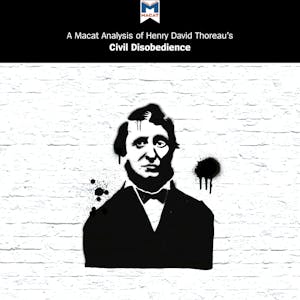Under the title Civil Disobedience, American author Henry David Thoreau’s essay was originally published in 1866, four years after his death in 1862. It is based on a lecture, “Resistance to Civil Government”, that Thoreau gave many years earlier, in 1848. Civil Disobedience asked when an individual should actively oppose government and its justice system. Thoreau’s answer was that opposition was legitimate whenever government actions or institutions were unacceptable to an individual’s conscience. But he went further, saying anyone who believed something to be wrong had a duty to resist it actively. These ideas were completely at odds with the prevailing opinions of the day—that it was the duty of every citizen to support the state.
Thoreau was himself an activist. Opposing both slavery and the Mexican-American War, he refused to pay his taxes and was jailed as a result.
While Thoreau was not widely known during his lifetime, the ideas he put forward in Civil Disobedience became highly influential in the twentieth century when they were taken up by people including Martin Luther King Jr., Mahatma Gandhi, and Nelson Mandela as a means of opposing their own governments.
